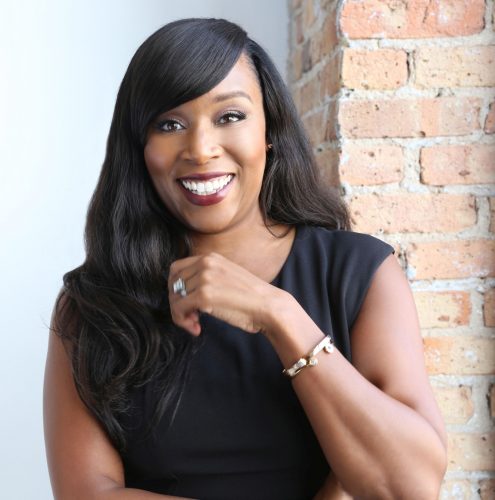When you look at the front lines of your organization–the athletes or performers–you know how they got to where they are right now. Sure, they have a lot of talent, and they’ve spent an inordinate amount of time honing their craft.
That’s all valuable and necessary.
But the real rub? It’s in the coaching they’re receiving.
Look at Tiger Woods, Serena Williams, Simone Biles, any of the teams in the recent Olympics. They all have coaches, and for good reason.
Coaches are an integral part of anyone’s growth and development–and of their success. And not just at elite levels of sports.
If you’re a regular at Barre or Orangetheory or even personal training, you know that the workouts you do in a class or with a coach are infinitely better than those you do on your own. Knowing that someone is there watching your effort and your form probably triggers you to pay more attention to said effort and form, which means you’re getting more out of your workout than if you were just going through the motions.
And you’re probably more likely to stick to your nutrition plan if someone is checking your progress.
The same is true with career coaching.
Coaches bring an outside perspective to your work, gathered from years of experience working with clients in a similar professional space. They’ve seen behind the scenes of many organizations and worked with a lot of clients with many different challenges and circumstances.
They’re not meant to tell you exactly what to do but rather to listen and help you with a career strategy based on where you are right now and where you want to go. And they’ll also make sure you’re holding up your end of the deal, like taking the action you decide on together. (No more cheating on that diet plan!)
How Coaching Works
But how does all this work, when a coach is typically an independent contractor you hire to help you with your career (or hired by your employer)?
Every coach’s process looks different, but most coaches will start with an introductory call and assessment to determine where you are now and where you want to be. We need to understand where your roadblocks are so we can come up with strategies to tackle them.
I have an intake form that’s essentially a self-reflection for new clients that helps you to determine what’s most important to you right now. On our initial call, we dive deeper into this so we can identify goals that allow us to prioritize our work together.
From there, we meet weekly or monthly and you have homework after every call to help you make progress. I hold you accountable by checking in on your homework. This is where you’re going to get the most benefit from coaching–by taking action toward your goals on a regular basis.
How Coaching Has Worked for Others
Want some real-life examples of how coaching has worked for others in your position?
- Creating a New Role – Janelle loved the organization she was in, but wanted to create space for growth. She wanted a new position that was a promotion, included a nice raise, and provided boundaries for her and her employer. I gave her the homework of breaking down all the things she was doing now, including what she was doing that she wasn’t being compensated for. Then Janelle listed what she wanted to be included in her new role, and created a new job description, complete with title, salary, and a list of the gaps she was filling so her boss would see the value in giving her the promotion. We developed a plan for how she would pitch her boss and she was incredibly prepared when it was time to have that conversation.
- Shifting Mindset – Sometimes it’s our own mindset and lived experiences that hold us back from the career growth we want. Kari is a client who has learned that being aggressive is her path to upward mobility. That’s where she’s seen success. But at the same time, she spends too much time in her own head and has a difficult time communicating with her team in a way that gets her message across appropriately. Kari’s homework was to create intentions for each day–not tasks she wanted to complete, but intentions for how she wanted to feel and be seen. This helped her feel more centered when she talked to team members and other managers and she was better able to get what she needed. As a bonus, she got outside of her internal drama and was able to really see the bigger picture of life and career.
- Transitioning Career – Renae wanted to find a new role at a completely different level in her industry (think minor league to major league), but didn’t have any experience at that level. A transition like that isn’t out of the question when you’ve done your homework. I tasked Renae with seeking out people who are in a role similar to what she’s looking for so she could network and gather intel about what that future role might look like. This makes it much easier to prepare a new resume and get ready for job interviews.
Is Coaching Right for You?
Any top performer who wants to get better can do so with a coach. You’ve seen athletes do it; you can too.
Coaching is for the aspiring manager or executive who is:
- Tired of being passed over for promotions
- Done sitting on the sidelines, watching others grow
- Frustrated with their current career path
- Ready to take their career to the next level
- Ready to write a new story for herself
If that sounds like you, then chances are you’d benefit from working with a coach–whether it’s something you do on your own or something your employer contributes to.
Need more insight and information? Let’s talk! Schedule a free 20-minute consult call with me and let’s see how we can give you the support you need.



